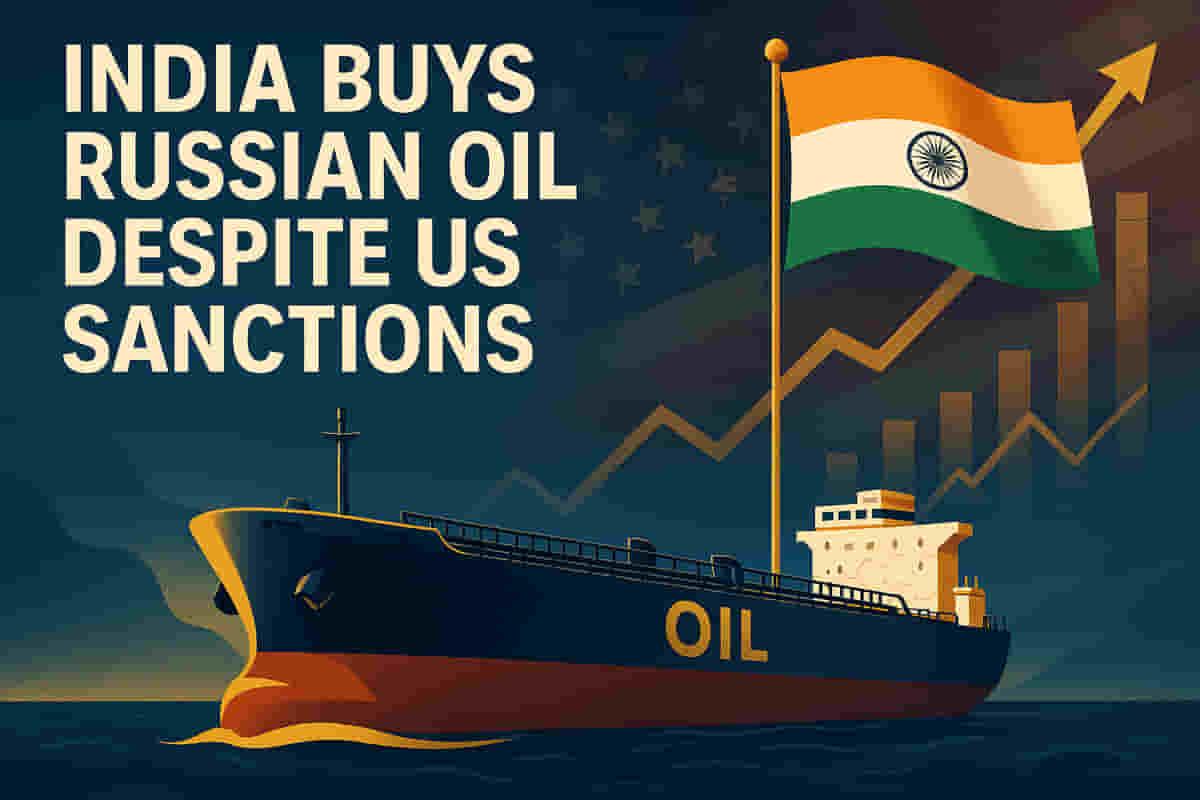Indian Oil Corporation Buys Russian Crude from Non-Sanctioned Firms Amidst US Sanctions
Energy
|
31st October 2025, 10:19 AM

▶
Stocks Mentioned :
Short Description :
Detailed Coverage :
State-run Indian Oil Corporation (IOC) has reportedly secured five cargoes of Russian crude oil for delivery in December, sourcing them from entities that are not subject to recent US sanctions. The US administration has imposed sanctions on Russian oil giants Lukoil and Rosneft, prompting many Indian refiners to suspend purchases from sanctioned firms. However, IOC plans to continue buying Russian crude as long as it complies with sanctions, meaning it will procure from non-sanctioned Russian entities and ensure price cap compliance. IOC Director (Finance) Anuj Jain stated that the company will not discontinue Russian crude purchases as long as sanctions are complied with, emphasizing that Russian crude itself is not sanctioned, but specific entities and shipping lines might be. This strategy allows Indian refiners to continue accessing Russian oil, which is often offered at significant discounts, thereby aiding India's energy security and import costs. While some other refiners like Reliance Industries, Mangalore Refinery and Petrochemicals Ltd, and HPCL-Mittal Energy Ltd have temporarily halted purchases, IOC's move highlights India's balancing act between international relations and energy needs. The availability of discounted Russian crude, especially grades like ESPO, has made it attractive for Indian purchasers following reduced demand from China.
Heading: Impact This news indicates that Indian refiners, particularly state-owned ones like Indian Oil Corporation, are continuing to procure Russian crude oil, albeit from non-sanctioned entities. This strategy allows India to benefit from discounted Russian oil prices while adhering to international sanctions. It suggests resilience in India's energy sourcing and continued strategic trade relations, potentially influencing global oil market dynamics and the profitability of Indian oil companies. The impact is moderate on the Indian stock market, primarily affecting the energy sector and companies involved in oil imports. Rating: 7/10
Heading: Difficult Terms Sanctions: Restrictions imposed by one country or a group of countries on another country, entities, or individuals, usually for political or economic reasons. These can include trade bans, asset freezes, or travel restrictions. Crude Oil: Unrefined petroleum that is extracted from the ground and processed into various petroleum products like gasoline, diesel, and jet fuel. Refiners: Companies that process crude oil into usable petroleum products. Cargoes: A shipment of goods transported by ship. In this context, it refers to shipments of crude oil. Non-sanctioned firms: Companies or entities that are not subject to official sanctions. Aggregator: In this context, an entity that buys oil from various producers and then sells it to refiners, potentially obscuring the original source of the oil for compliance purposes. Price cap: A maximum price set by a government or international body on a commodity, in this case, Russian oil, to limit revenue for the producing country. ESPO crude: A grade of crude oil produced in Eastern Siberia, often transported via the ESPO pipeline. Dubai quotes: A benchmark price for crude oil in the Middle East, often used as a reference for pricing other crude grades in the region.